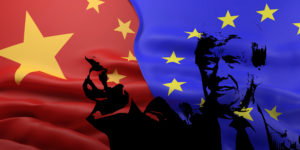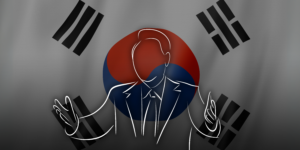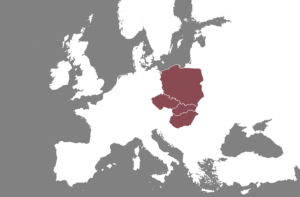The storming of the US Congress and the inability of the West to deal with the pandemic are a godsend for the propaganda of authoritarian regimes.
“We love you, you’re special,” said outgoing US President Donald Trump in a brief speech to the rioters who broke into the Capitol. Capitol’s storming, which interrupted the certification of the US election results, is one of the most prominent offline symptoms of the ongoing infodemics – the uncontrolled spread of misinformation, conspiracies and other nonsense.
Pictures of the event immediately flooded social networks and raised legitimate concerns about the resilience and future of democratic institutions in the United States and around the world. Even thought the Capitol was cleared in a matter of hours and the election certification resumed, the highly symbolic damage to the idea of liberal democracy had already been done. Authoritarian regimes, such as those of the Communist Party of China or Putin’s Russia, will benefit in particular.
The reaction of the representatives of these two regimes, which personify an antithesis to the ideals of liberal democracy, did not take long.
For example, propaganda site Russia Today’s quoted Russian Foreign Ministry spokeswoman Maria Zacharova saying: “The electoral system in the United States is archaic and does not meet modern democratic standards.” The assessment is particularly cynical from the regime, where Putin won the last presidential election with 10 million false votes, and where opposition figures are frequent targets of assassins. Russia Today added with another breath that Ukraine, “where there was a violent and unconstitutional transfer of power in 2014,” also expressed concern about the situation in the USA.
Washington and Hong Kong: false comparisons
Of course, in addition to Russia, China also quickly used the situation to its advantage. About a year and a half before the events in Washington, protesters stormed the main hall of the Hong Kong Legislative Council. However, the incident differs from the conduct of American rioters in one fundamental aspect – while the inhabitants of Hong Kong protested against the increasing curtailment of their rights and freedoms by Beijing, in the USA it was an act aimed at disrupting the transfer of power after regular and legitimate elections, as confirmed by independent courts. Any comparison of these two events is therefore a false equivalence.
However, this did not prevent representatives of the Chinese government and government-controlled media from drawing attention to exactly this comparison. A China Daily journalist (a newspaper under the direct control of the Communist Party) wrote on Twitter: “If those who stormed US Capitol were ‘domestic terrorists’ as future US leader & US media said, then the mobs who stormed/vandalized HK Legislative Council, threw hundreds of petrol-bombs, destroyed subway stations, paralyzed airport were ‘hardcore terrorists’. Otherwise no logic.” Similar language was used also by Hua Chunying, the spokeswoman of the Chinese Ministry of Foreign Affairs.

The peak of cynicism was reached the state news agency Xinhua. The agency in a tweet called “violent protests” a word of the day and urged students of Chinese to compete in an English-Chinese translation of a short text about four deaths that occurred during the Capitol storming.
The COVID effect
Events such as the storming of the Capitol are not the only threat to the legitimacy of democracy. The ability of governments in Europe and North America to respond to the spread of the COVID-19 pandemic poses the same, if not greater, threat to the future of democracy in the world.
China is clearly responsible for the initial slow informing of the COVID-19 outbreak in Wuhan. However, the failure to bring the disease under control more than a year after its outbreak is already to the detriment of individual Western governments. Compared to the situation in the USA or the EU, the government in China has managed the coronavirus situation much better in recent months.
Of course, Chinese propaganda managed to use it for its benefit. “Amid the pandemic, ordinary Chinese people have been well protected while people in Western countries are living in fear of the epidemic,” the summed up the nationalist tabloid Global Times.
However, the inability of Europe and America, and China’s success in fighting the pandemic has little to do with democracy as such. This is evidenced by several democratic countries in Asia Pacific (e.g. Japan, Taiwan, Australia, or New Zealand from which we could learn a lot in anti-pandemic measures), which have handled the virus quite well, perhaps even better than China. Nevertheless, a parallel between the Chinese model of governance and the ability to cope with a pandemic is emerging in tne public discourse, in turn partially delegitimizing liberal democracy – both in the eyes of non-democratic countries’ inhapitants as well as in the eyes of Westerners who have found themselves for various reasons disanfranchised and on the margins of the society in the past years.
West, where art thou walking?
If the West is serious about protecting liberal democracy from the growing power of authoritarian regimes, it must finally dare to take bold action. It is not just a matter of creating new alliances of democratic countries which share the same values. There is an increasingly urgent need to strenghten the internal ressilience of democratic institutions. In this context, Edward Lucas’s words resonate strongly: “Nothing that Chinese influence operations do to democracies matches the damage that we do to ourselves.”







